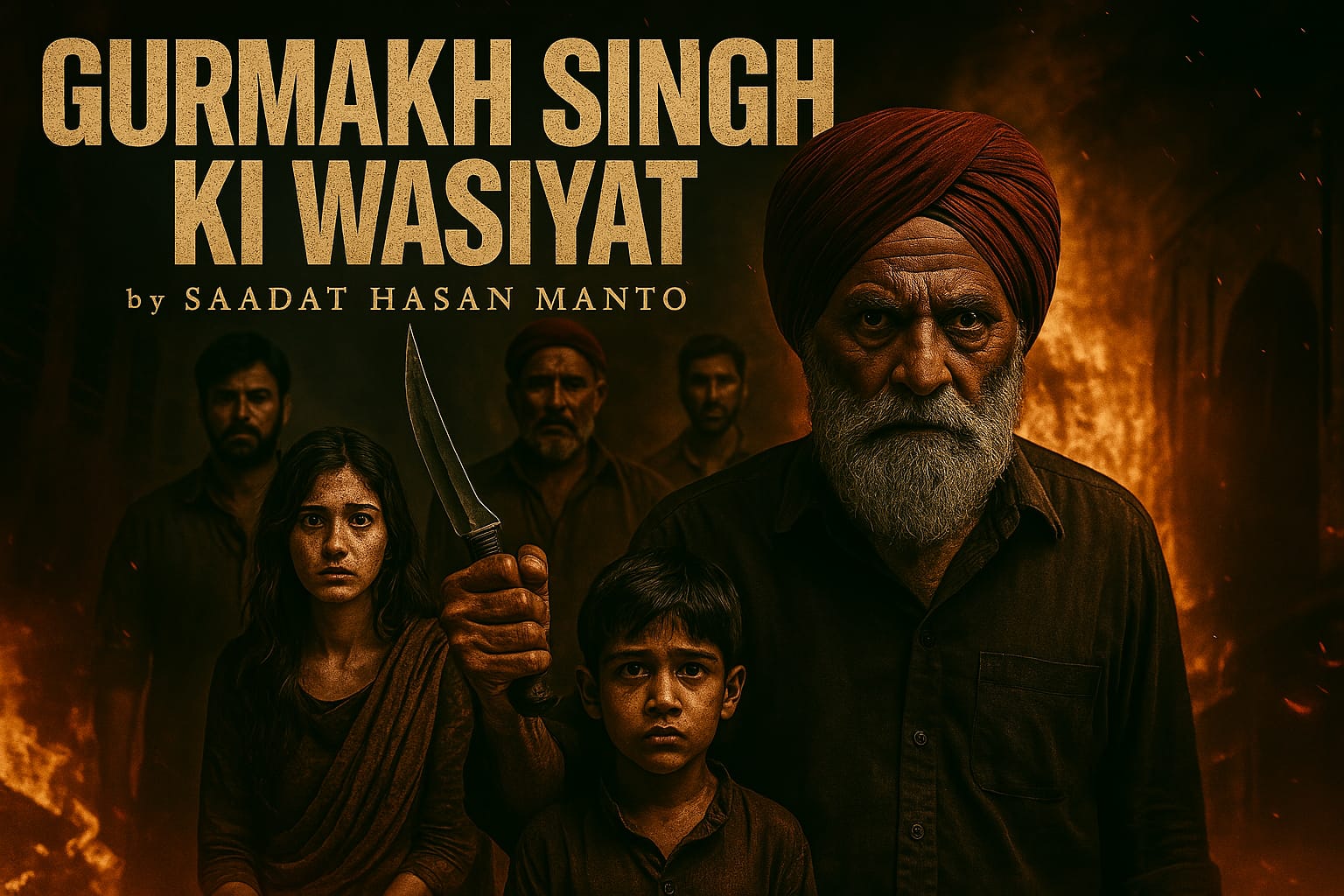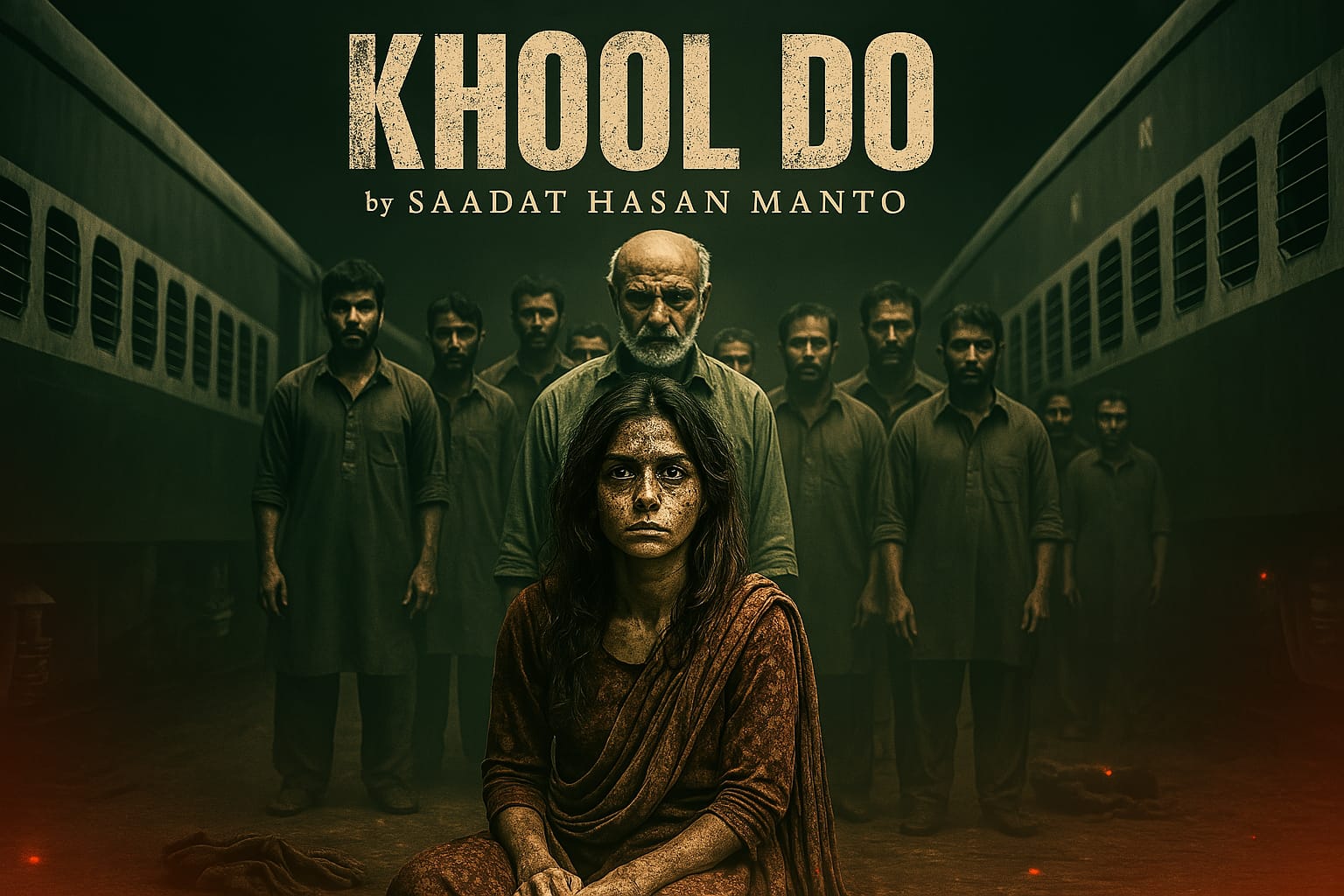Saadat Hasan Manto
Saadat Hasan Manto was a bold and brilliant Urdu writer. He was born on May 11, 1912, and passed away on January 18, 1955. He started his writing journey in British India and continued after moving to Pakistan following the Partition in 1947. Manto is best known for his honest and powerful short stories, especially those that highlighted the pain and challenging times of the Partition.
He wrote 22 collections of short stories, along with radio plays, essays, and even a novel. His work often started an argument because he wrote openly about the strict realities of society. For this, he was taken to court six times for “offensive words” but was never proven guilty. Today, Manto is remembered as one of the greatest Urdu novel writers of the 20th century, and his legacy lives on through books, films, and literary archives like Rekhta.
If you’re new to Manto’s stories, these are a good way to begin. They’re full of emotions and show the tough sides of society that Manto always wrote about. Pick any one and see how his words pull you in.
Saadat Hasan Manto Stories
Manto's Personal Life
Manto was born on 11 May 1912 in Samrala, Ludhiana, to a Kashmiri family. On 26 April 1939, he married Safia Begum, a Kashmiri girl he had never met before. Their married life began with love and hardships. In 1941, their first child, Arif, passed away at a very young age in Delhi. This loss deeply affected both Manto and Safia.
Later, the couple was blessed with three daughters: Nighat, Nuzhat, and Nusrat. He had a deep love for his family, even though financial struggles were always present. His eldest daughter, Nighat Bashir, still lives in Lakshmi Mansions, Lahore — the same place where he took his last breath.
Saadat Hasan Manto died on 18 January 1955 in Lahore at his residence in Lakshmi Mansions, Beadon Road. He was only 42 years old at the time of his death. The cause of death was cirrhosis of the liver due to excessive alcohol consumption.
Saadat Hasan Manto—A Voice of Truth, Pain, and Boldness
Saadat Hasan Manto was born in 1912 in a village near Ludhiana, India. He was not very good at studies in school, but later he found a love for reading and writing. He translated famous books into Urdu and then began writing his own short stories.
He moved to Bombay and worked in films and radio. He wrote scripts, dramas, and short stories. Manto made many friends in the writing world, like Ismat Chughtai and Krishan Chander. His stories were bold and showed the real face of society.
After the partition in 1947, he moved to Lahore, Pakistan, with his family. He was very sad after seeing the pain and bloodshed during the partition. He wrote many powerful stories on this topic. But people in Pakistan thought his writing was too bold, and he had to face court cases.
Manto became very upset and started drinking too much. His health got worse, and he died in 1955 at the age of 42. Even today, Manto is remembered as one of the greatest writers of Urdu who always told the truth through his stories.
Writings — Saadat Hasan Manto Books
Saadat Hasan Manto was a writer deeply affected by the Partition of India in 1947, which he saw as a painful mistake. He didn’t support the division and often wrote about the pain and damage it caused. He started his career by translating famous writers like Victor Hugo and Chekhov, with his first story, “Tamasha,” focusing on the Jallianwala Bagh incident.
In his early works, He was influenced by progressive ideas, but over time, his writing grew darker, showing how human values were lost after Partition. Stories like Toba Tek Singh revealed confusion and madness, often with a bit of dark humor. His work started to reveal painful truths about society, focusing on the struggles of women and marginalized people.
He believed that if his stories seemed dirty, it was because society itself was dirty. He was never afraid to talk about taboo subjects, and many admired him for shedding light on hidden aspects of life. Despite facing controversy and court cases, his work remains a bold reflection of the human condition and a critique of society’s flaws.
Manto’s stories were bold, emotional, and deeply realistic — just like the novels in our Bold Romantic Urdu Novels and Dark Romance Urdu Novels PDF categories. His fearless writing style, which exposed the raw emotions and hidden truths of society, connects well with the themes found in these categories. To explore more such meaningful stories, visit our Exponovels.
Controversies
Manto was taken to court six times for writing stories that some people called “vulgar” or too bold. Three cases happened before the Partition in British India, and three after he moved to Pakistan. These included stories like Bu, Thanda Gosht, and Khol Do. He was only fined once. Manto defended himself by saying, “I’m not an adult content writer; I’m just a storyteller.
People from conservative groups criticized him for writing about topics they found morally wrong. On the other hand, some progressive and leftist thinkers also criticized him—not for his writing, but for moving to Pakistan and supporting Pakistani identity. Even though he got criticism from both sides, some respected literary critics stood by him.

